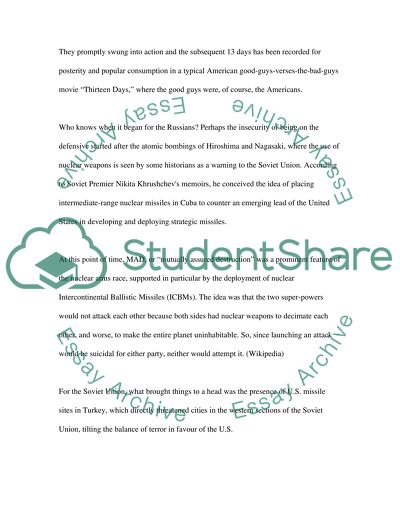Cite this document
(“Missile Crisis Essay Example | Topics and Well Written Essays - 2750 words”, n.d.)
Retrieved from https://studentshare.org/history/1528565-missile-crisis
Retrieved from https://studentshare.org/history/1528565-missile-crisis
(Missile Crisis Essay Example | Topics and Well Written Essays - 2750 Words)
https://studentshare.org/history/1528565-missile-crisis.
https://studentshare.org/history/1528565-missile-crisis.
“Missile Crisis Essay Example | Topics and Well Written Essays - 2750 Words”, n.d. https://studentshare.org/history/1528565-missile-crisis.


